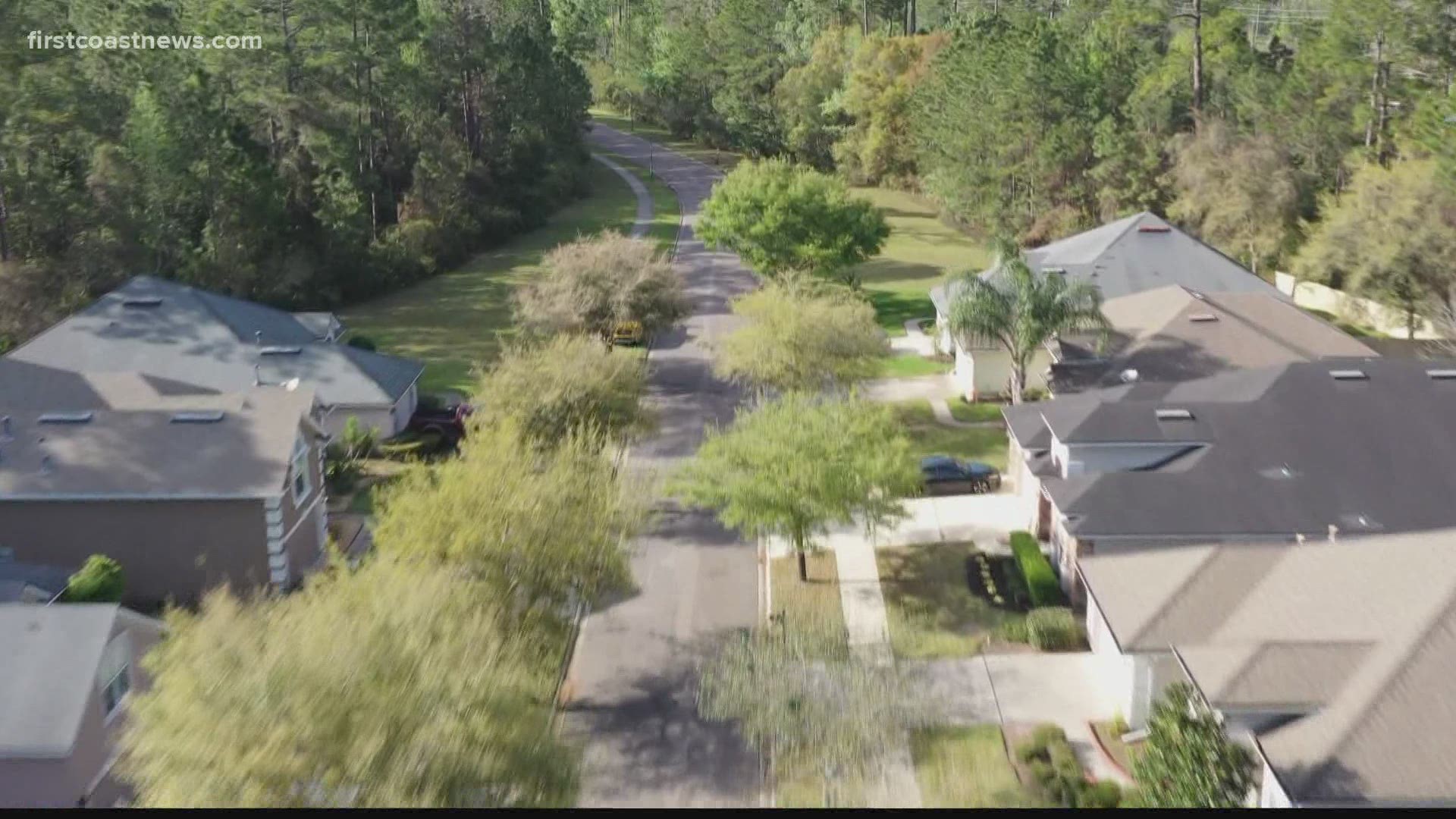JACKSONVILLE, Fla. — It is no secret that the real estate market on the First Coast is a seller’s delight. So it is a particularly important time to remember some rules of thumb for people hoping to buy a home.
“Be very careful about buying something out of your price range,” personal financial planner Bob Horne with NuVenture Financial Group cautioned. “The conventional wisdom is to buy something within about 30% of your gross income for the year.”
Meaning, for example, if your gross annual income is $60,000, you shouldn’t take on a monthly payment that exceeds 30%, or in this example $18,000, which works out to $1,500 monthly.
And not just the loan.
“What they call P-I-T-I: principal, interest, taxes, and insurance,” Horne said. “The whole deal needs to be about 30% of your gross income, not your net income.”
With home prices skyrocketing in northeast Florida, those guidelines are pricing many would-be buyers out of the market. However, Horne warned hopeful homeowners against yielding to temptation.
“It’s very easy to get overextended,” Horne admonished. “If there’s a recession or something like that down the road, can you still afford that house, which is why you really need to be careful about staying under that 30% threshold.”
Realtor Robin Zuckerman at Coldwell Banker Vanguard Realty said, on one hand, she is seeing one sign that might help prospective buyers.
“We are seeing more listings now than we were three weeks ago,” Zuckerman said.
She said that is expected this time of year and that demand is still very high.
“Because people move right around school time, right? So when kids are out of school it’s easier for families to move out of their homes,” Zuckerman explained.
She also said despite the high demand, there appears to be a slight cool-off in the typical number of bids on a home.
“It’s slowing down, I think, because it’s easy to get caught up in the chaos,” Zuckerman said.
She pointed out, there still are some motivated sellers.
“I have several people who are needing to sell their home in order to purchase their next home," Zuckerman explained. "And actually, quite a few are downsizing.”
At the same time, there are many who need to buy, or at least rent, a home without the option to wait, such as those relocating because of jobs or military assignments.
Horne also urged buyers to make a down payment of at least 20% in order to avoid the extra expense of private mortgage insurance, which protects the lending institution from default but comes out of the pocket of the buyer.
“If the real estate market takes a turn and goes down, you may be stuck paying that private mortgage insurance for many, many years,” Horne explained.
He also cautioned heavily against placing money saved toward a home purchase in any investment that can fluctuate, such as stocks.
“Put that money into a good old-fashioned savings account or a money market – something with fixed interest," Horne said. "You’re not going to get a lot, but it’s going to be there when you’re ready to put that on a down payment on a house.”
When it comes to lenders, Horne emphasized that not all of them are equal and home buyers can be rewarded by doing a little research.
“Shop the rate," Horne said. "Shop the fees around, for sure.”
If it’s a new home, he added the suggestion to ask the builder if it is linked to a financing company or has one of its own.
As for getting home insurance, Horne said independent insurance agencies can save you money all while doing much of the leg work.
“There’s plenty of them out there. They can get a lot of answers," Horne said. "They can shop that insurance around for you with many different companies, and you’re usually going to come out on favorable terms.”
Horne said the current seller’s market presents a potential strategic opportunity for those downsizing to smaller homes.
“You might want to consider selling your primary residence at the peak and potentially renting for a couple of years,” Horne offered. “And if the market does crash or go down a little bit, at least you can buy in at a low.”
“I think that’s absolutely, positively what’s going to be happening, for sure,” Zuckerman concurred.
However, he was quick to point out that there’s risk involved in that strategy if the market doesn’t shift downward within one’s preferred timeframe.
“A lot of folks are waiting for that bubble to burst,” Horne said. “Who knows if that’s going to happen any time soon.”

